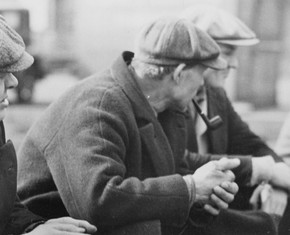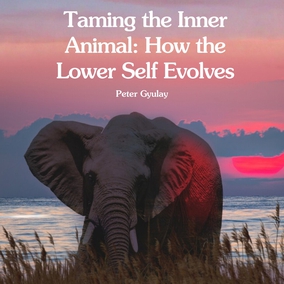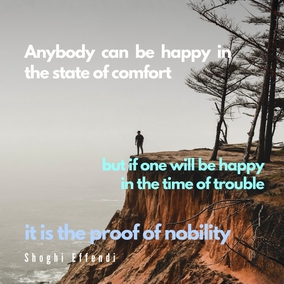The views expressed in our content reflect individual perspectives and do not represent the authoritative views of the Baha'i Faith.
As the baby boomers — those born between 1945-1964 — gradually pass away, the U.S. will witness the largest inheritance windfall in human history, a massive sum economists call “the great wealth transfer.”
The American “boomer” generation and its predecessor, the “silent” generation, now own an unprecedented $72 trillion in assets, many financial journals and online sources have reported, which is now in the process of passing to their heirs in the biggest intergenerational wealth transfer ever.
Wikipedia characterizes this ongoing wealth transfer, however, as primarily benefitting the heirs of the rich, saying that: “The wealthiest 10% of households will give and receive the vast majority of the wealth, with the top 1% holding about as much wealth as the bottom 90%.”
RELATED: How Do We Face Our Own Death?
Who will those heirs be? Will only the direct descendants of the wealthiest Americans benefit; or will a significant sum go to those who need it most? We shall see — since it depends on what’s in the wills, and the hearts, of those bequeathing their assets.
Which reminds me — do you have a will?
The Baha’i writings say that people are free to dispose of their possessions after their death in any way they choose — and that everybody should write a will so their assets can be fairly distributed when they pass away. “In truth,” Abdu’l-Baha wrote, “the wisdom of this perspicuous and most mighty ordinance is that no one should draw breath without a will.”
Baha’u’llah asked all Baha’is to write a will and testament while they’re alive so they don’t die intestate (without a will), and so their assets don’t pass into probate.
In his Most Holy Book, Baha’u’llah clearly stated that in drawing up his will, “a person hath full jurisdiction over his property,” since God has permitted the individual “to deal with that which He hath bestowed upon him in whatever manner he may desire.”
From a Baha’i perspective, then, we’re all free to decide where our assets go after we die. Additionally, though, in a letter written on his behalf, the Guardian of the Baha’i Faith, Shoghi Effendi advised:
… even though a Baha’i is permitted in his will to dispose of his wealth in the way he wishes, yet he is morally and conscientiously bound to always bear in mind, while writing his will, the necessity of his upholding the principle of Baha’u’llah regarding the social function of wealth, and the consequent necessity of avoiding its overaccumulation and concentration in a few individuals or groups of individuals.
In other words, the Baha’i law regarding inheritance asks that those with substantial wealth carefully consider their social obligation to all humanity, not only their direct heirs.
Imagine it — if just one human generation followed this advice, we could end global poverty in the space of a decade or two, eliminating the world’s widening wealth gap and minimizing the great and growing disparity between wealth and poverty. Generational wealth could diminish and be distributed to those in the most need and to the organizations that help them.
Baha’is believe that previous efforts to reduce or eliminate the great disparities of wealth and poverty in the world failed because they did not include a strong spiritual component. Instead, those previous efforts, including the Marxist attempt to forcibly impose the proletariat of the worker, tried to legislate absolute equality among all — which the Baha’i teachings say can never serve as a workable solution to the age-old problem of wealth and poverty.
In a speech he gave in Paris in 1911, Abdu’l-Baha said:
We see amongst us men who are overburdened with riches on the one hand, and on the other those unfortunate ones who starve with nothing; those who possess several stately palaces, and those who have not where to lay their head. Some we find with numerous courses of costly and dainty food; whilst others can scarce find sufficient crusts to keep them alive. Whilst some are clothed in velvets, furs and fine linen, others have insufficient, poor and thin garments with which to protect them from the cold.
This condition of affairs is wrong, and must be remedied. Now the remedy must be carefully undertaken. It cannot be done by bringing to pass absolute equality between men.
RELATED: The Only Solution to Our Economic Problems: The Oneness of Humanity
Instead, Baha’is believe, differences in the economic prosperity of people will always exist. The Baha’i teachings point out, however, that the great extremes of wealth and poverty should be both legally regulated and voluntarily remediated — resulting in the “adjustment in the means of livelihood” that Abdu’l-Baha described.
In many nations around the world, these kinds of adjustment efforts are being actively considered or have already become a reality.
Taxation policies in many (but not all) developed countries often prevent the gross accumulation of obscene wealth among the very rich, for example, and government assistance programs prevent homelessness, indigence, and starvation for the very poor. Increasingly, in such societies, the extremely wealthy also consciously and voluntarily contribute a significant portion of their wealth toward the efforts of governments and non-profit organizations to alleviate and address poverty and its effects.
This kind of joint public/private partnership, combining governmental policy and humanitarian generosity, can only truly work as the Baha’i teachings intend in a future global society with a federalized world government. Otherwise, with different tax rates and social policies in disparate countries, so-called “banking havens” that protect and shelter wealth from legitimate taxation will continue to allow the extremely wealthy to avoid their social and spiritual responsibilities. In a speech he gave in the United States in 1912, Abdu’l-Baha explained:
The essence of the Baha’i spirit is that, in order to establish a better social order and economic condition, there must be allegiance to the laws and principles of government. Under the laws which are to govern the world, the socialists may justly demand human rights but without resort to force and violence. The governments will enact these laws, establishing just legislation and economics in order that all humanity may enjoy a full measure of welfare and privilege; but this will always be according to legal protection and procedure. Without legislative administration, rights and demands fail, and the welfare of the commonwealth cannot be realized. …
While thousands are considering these questions, we have more essential purposes. The fundamentals of the whole economic condition are divine in nature and are associated with the world of the heart and spirit. This is fully explained in the Baha’i teaching, and without knowledge of its principles no improvement in the economic state can be realized. The Baha’is will bring about this improvement and betterment but not through sedition and appeal to physical force — not through warfare, but welfare. Hearts must be so cemented together, love must become so dominant that the rich shall most willingly extend assistance to the poor and take steps to establish these economic adjustments permanently. If it is accomplished in this way, it will be most praiseworthy because then it will be for the sake of God and in the pathway of His service. For example, it will be as if the rich inhabitants of a city should say, “It is neither just nor lawful that we should possess great wealth while there is abject poverty in this community,” and then willingly give their wealth to the poor, retaining only as much as will enable them to live comfortably.
















Comments
Sign in or create an account
Continue with Googleor